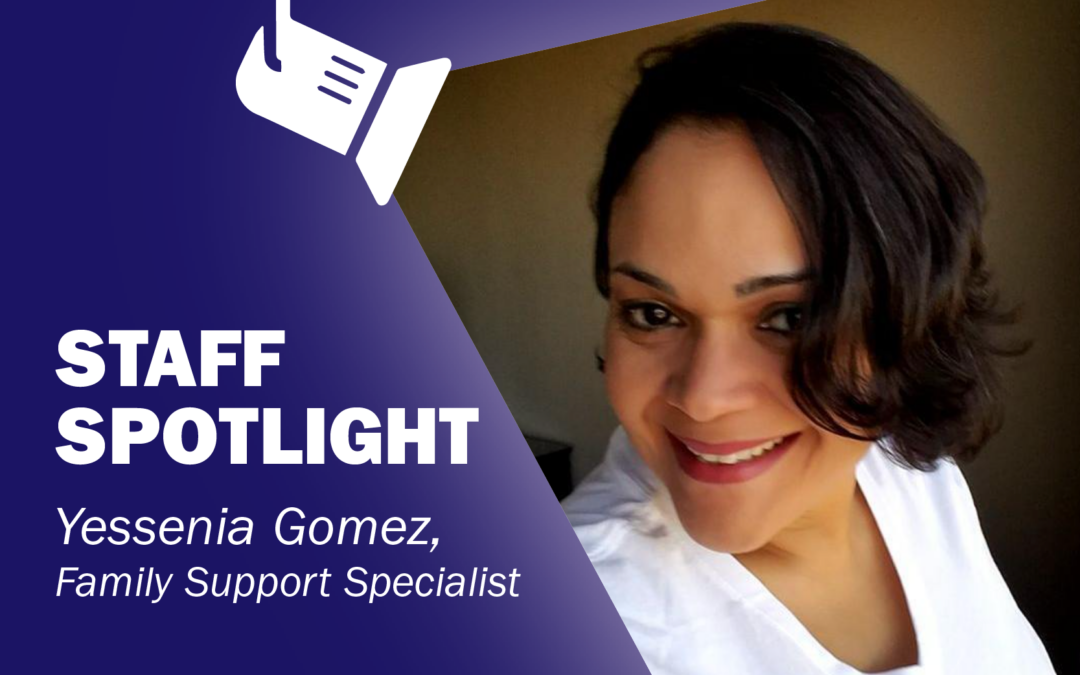After nearly two decades working with grieving families, followed by a period of hardship in her own life, Yessenia Gomez began a career at JCCA. We sat down with her to learn more.
Tell us about your role.
I’m a Family Support Specialist on the Pleasantville campus. I collaborate with the social work team and the families of residents to repair bonds and overcome obstacles to reunification and stability. That means facilitating family visits and working through roadblocks and barriers to getting back home. It’s my job to be there for the youth through the hard stuff––through crises and the processing of strong emotions. While I let my fun side show, I balance it with seriousness. I’m consistent, firm, and committed to making progress for these kids. Good days, bad days, I show up all the same.
How has your career up to now prepared you for this difficult work?
I worked in death and dying for many years. As an organ donation coordinator in the ICUs of New York City, I saw really hard stuff: suicides, fatal child abuse, adults who died while incarcerated, everything. My role required me to speak with families in their most pained moments about the chance to give life to others through organ donation. It’s sensitive and delicate work, as is my work with JCCA. I’m patient and non judgmental by nature, and that was essential in connecting with grieving people. I learned how to be strong enough to stand by their side.
Your own life hasn’t been free of the stresses and struggles that the families we work with go through.
My daughter was diagnosed with a rare form of cancer in 2017, when she was one year old. My husband and I divorced soon thereafter and I was let go from a job I’d held for 17 years. This period was surreal and shattering. I was on the verge of homelessness: sustaining myself on my retirement funds while spending every waking hour in the cancer unit. I didn’t know how to ask for help, how to seek out social services. I was a mess. The oncology nurses held me together. So I know what some of our clients experience: how our stability can unravel so rapidly, and also how it can be put back together, bit by bit.
My family and I are slowly but surely rebuilding our lives. I have a career that I value. My daughter is in remission, and all my children are doing wonderfully in school.
You came to JCCA just last year. How did you find the work?
This work is slower than an ICU setting, which means I have the capacity to connect more. I take advantage of that. When things work out well for the youth it means a lot to me. But their needs are often significant and progress moves slowly. That tries the patience of a young person who feels as though they are in crisis. But I’m up to the task.
Any final thoughts?
I’m happy to have found a job where I can really use the resilience I’ve developed through the experiences I’ve mentioned. Life has molded the woman I’ve become. My children have molded the mother I am. The youth and families I’ve served have molded the professional I am.
